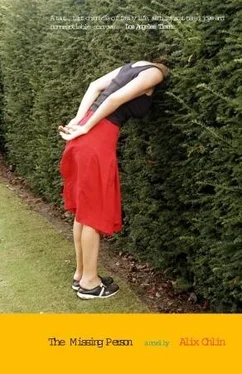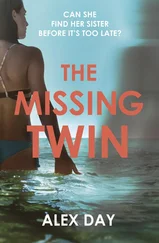“What’s your baby’s name?”
“Psyche,” she said.
“As in Cupid and Psyche?”
“Yes, Cupid is the god of love, and Psyche is the soul.”
“I see,” I said.
“I’m going to raise her at home and teach her myself. Angus says that what they teach in schools here is useless. The only skill the children learn is conformity to a set of capitalist rules.”
I had a sudden, obvious thought. “Is Angus—”
Irina tilted her head and smiled at me gently. She was very pretty. “Is he what?”
“Is he Psyche’s father?”
“No,” she said. “He is more in a nature of an uncle. He helps me very much, though.” She turned to face me under the dim umbrella of a streetlight. “I think he likes you.”
“We don’t know each other.”
“That doesn’t matter.”
A prickle started at the back of my neck and trailed down my back to my legs. Then I felt embarrassed. “What is this, high school?”
“Oh, he didn’t say anything to me like that,” Irina said. We started walking again, and turned right to make a loop around the block. “I can just tell. Because I know him.”
In the silence that followed I could hear the tiny hum and wheeze of Psyche snoring. Finally I said, “How well do you know Wylie?”
“Pretty well, I should say.”
“When was the last time you saw him?”
“Oh, I don’t know. He comes and goes. Sometimes he camps for long times in the mountains. He is a very independent person, you know.”
I sighed. Nobody seemed to care that he wasn’t around, except for my mother and me. I felt annoyed, and concerned, and lonely — whenever I came home, Wylie was supposed to be there — and tired from the combination of it all. “I’m worried about him,” I said to Irina.
She shrugged and ran a gentle finger under Psyche’s fat sleeping chin. “Why? I think he is happy enough.”
“Happy enough? That’s not exactly a ringing endorsement.”
“It is probably more than most people can say.”
I didn’t answer this statement, which struck me as true. We made another turn and walked back toward Wylie’s apartment. Ahead of us, a group of people was coming down the stairs of his complex. One of them stopped and blew his nose in a visible spray over the street. “That was no dog,” his friend was saying. “It was a goat!” Then they all got onto bicycles and rode away.
I went back inside, hoping against all realistic hope that Wylie would be there, waiting for me and ready to talk. But the apartment was empty, and he wasn’t.
Life at my mother’s house settled into a shaky routine, the tenuous reestablishment of an adult child come back home. It didn’t feel right, but it didn’t feel exactly wrong, either. In the mornings as I slept my mother left me notes, assigning me various chores — defrost the fridge, take out the trash — that I consistently ignored. She came and went day and night, to work and to go bowling or to the movies with David Michaelson, like some roommate I’d found through a classified ad. Neither of us mentioned his wife.
Daytime television kept me sane. During the long, bright days I closed the curtains and lay on the couch, eating ice cream and learning about celebrities’ drug recovery programs, also their wedding plans, decorating styles, and diets. Sometimes I fell asleep to the Weather Channel, the calm swaths of cold fronts in the Rockies, the monotony of drought in the Southwest.
One evening, when my mother came home from work, I turned off the television and brought out Eva Kent’s two paintings.
“Were you going through my room?” she asked.
“Sorry,” I said quickly. “I just wanted to see some of the old things again.”
She shrugged. “I don’t care for those paintings.”
“I like them. I think they’re pretty good, actually.”
We both glanced at the paintings — I’d set them against the living-room wall — as if they might have something to contribute to the conversation.
My mother raised one eyebrow, briefly. I could tell she put stock in my judgment, even though it contradicted her own, which was touching, if probably a mistake.
“Well,” she said, “you would know.”
“Where did they come from?”
“Oh, your father came home with them one day. My birthday present, I think.”
I was surprised to hear this, and couldn’t remember it happening. Then again, if he’d given them to her around the time they were painted, I would’ve been a baby. Still, my father always gave abstract and wildly impersonal presents: board games, magazine subscriptions, T-shirts. The popularization of the gift certificate was the best thing that ever happened to him, birthday-wise.
“Probably his secretary picked them out for him,” she went on. “I hated them all along, to be honest with you. Those naked, unhappy-looking people. And what’s happening in that second painting, with the woman lying on the man’s lap? I don’t even want to know. But I didn’t want to hurt your father’s feelings, so up they went.”
“Do you know anything about her? Eva Kent, I mean.”
She studied my face for a moment. “The artist? Why are you so interested in her all of a sudden? You never showed one bit of interest in those paintings before.”
“I have more training now,” I said. “I, um, know things.”
This shut her up. “Well, I’m sorry I can’t tell you more.” Then she went into the kitchen and changed the subject. “What about Wylie? Have you made any progress on figuring out where he is?”
“Well,” I said, and sighed. “I’ve decided that progress is a lie.”
She came out of the kitchen to pick up my ice-cream bowl and carry it back in there, a gesture I interpreted as laden with reproach.
“Don’t do that, I’ll take care of it.”
“You will?” she said.
“Eventually.”
She picked the bowl up anyway, and I followed her to the sink, where she started scrubbing away as if at years of accumulated dirt. Still in her work clothes, a navy-blue skirt and a light-blue blouse with short sleeves, she looked like the head attendant on an exhausting flight. The flesh of her arms bounced and shook a little as she washed.
I opened the fridge and took out a bottle of beer.
“Lynnie,” she said.
“The thing is, Mom, if you’re so desperate to find Wylie, why don’t you look for him yourself?”
She set the bowl gently in the drainer and turned around, water from the sink stretching across her abdomen, like a smile or a scar. “Do you think I haven’t?” she said.
So in the morning I set off again in the Caprice, the radio turned up loud, and drove through the sun-addled streets. The city looked criminal: dust blew across the windshield, men leered at me from corners and from behind the wheels of their pickups, working girls paced beneath the bleached neon signs of fleabag motels. The Sandias were brown in the distance. The houses were brown. The highways were brown. Everything was brown. The car’s wheezing air-conditioning blew a stream of tepid air over my right shoulder. I was sweating and cursing by the time I pulled up at Wylie’s place.
No one answered my knock. I sat down in a slice of shade on the landing outside his door and waited for someone to come back. A stray dog ambled down the block, head down, marking its territory here and there in the brown lawns. In this neighborhood dirt and weeds were fighting a winning battle against all grass. The dog lifted its head, sniffed the air, and looked at me.
When we were kids Wylie and I had a dog named Sycamore — Syc for short, which my parents thought was funny— that we took on hikes in the Sandias with my father. Hiking was our main activity together. During the week he got home too late for us to see him much, but on Saturdays or Sundays my mother would send the three of us packing so she could clean up or chat with her friends or talk to her mother on the phone. My father always wore the same thing, brown shorts and those too-high socks and a broad-brimmed hat, and he almost always took us on the same trail. It led to a cave, where we ate a lunch he’d carried for us in his knapsack. Sometimes he invited a friend, another scientist from work, and they’d walk too fast, talking shop and ignoring me and Wylie until we turned on each other and had to be yelled at. Other times, though, alone, he’d talk about his own childhood in Chicago, a place that sounded dramatic and foreign to me, with snowdrifts higher than I was and hot dogs as long as my arm. For years I dreamed about going there in winter to skate on the streets to my father’s school, the way he’d done when he was a kid.
Читать дальше












